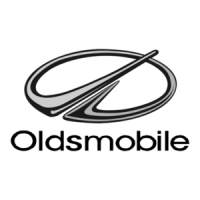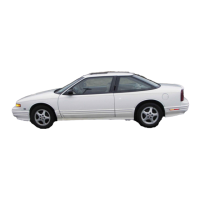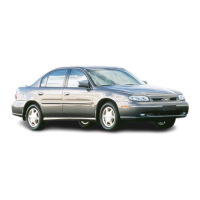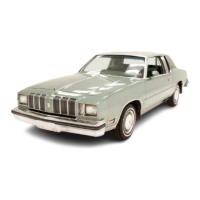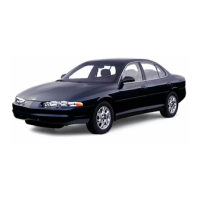DRIVE (D): This position is for normal driving. It is the
Overdrive position. If you need more power for passing,
and
you’re:
-
Going less than
35
mph
(56
M),
push your
accelerator pedal about halfway down.
-
Going about
35
mph
(56
kmh)
or more, push the
accelerator pedal all the way down.
You’ll shift down to the next gear and have more
power.
NOTICE:
If
your vehicle seems
tb
start
up rather slowly, or
if it seems not to
shift
gears
as
you go faster,
something
may
be wrong with
a
transaxle system
sensor.
If
you drive very
far
that way, your
vehicle can be damaged.
So,
if
this
happens, have
your vehicle serviced right away. Until then, you
can use SECOND
(2)
when you are driving less
than
35
mph
(56
km/h)
and DRIVE (D) for
higher speeds.
THIRD
(3):
THIRD
(3)
is like DRIVE (D), but you
never
go
into Overdrive.
Here are some times you might choose THIRD
(3)
instead of
DRIVE
(D):
-
When driving on hilly, winding roads.
-
When towing a trailer,
so
there is less shifting
-
When going down a steep hill.
SECOND
(2):
This position gives you more power but
lower fuel economy. You can use SECOND
(2)
on hills.
It can help control your speed
as
you go down steep
mountain roads, but then you would also want to use
between gears.
lr brakes off and on.
NOTICE:
Don’t drive
in
SECOND
(2)
for more than
5
miles
(8
km),
or
at
speeds
over
55
mph
(88
km/h),
or you
can
damage your transaxle. Use
DRIVE
@)
or
THIRD
(3)
as
much aspossible.
Don’t
shift
into SECOND
(2)
unless you are going
slower than
65
mph
(105
km/h),
or you can
damage your engine.
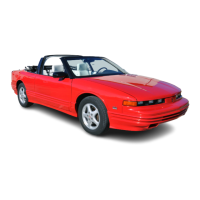
